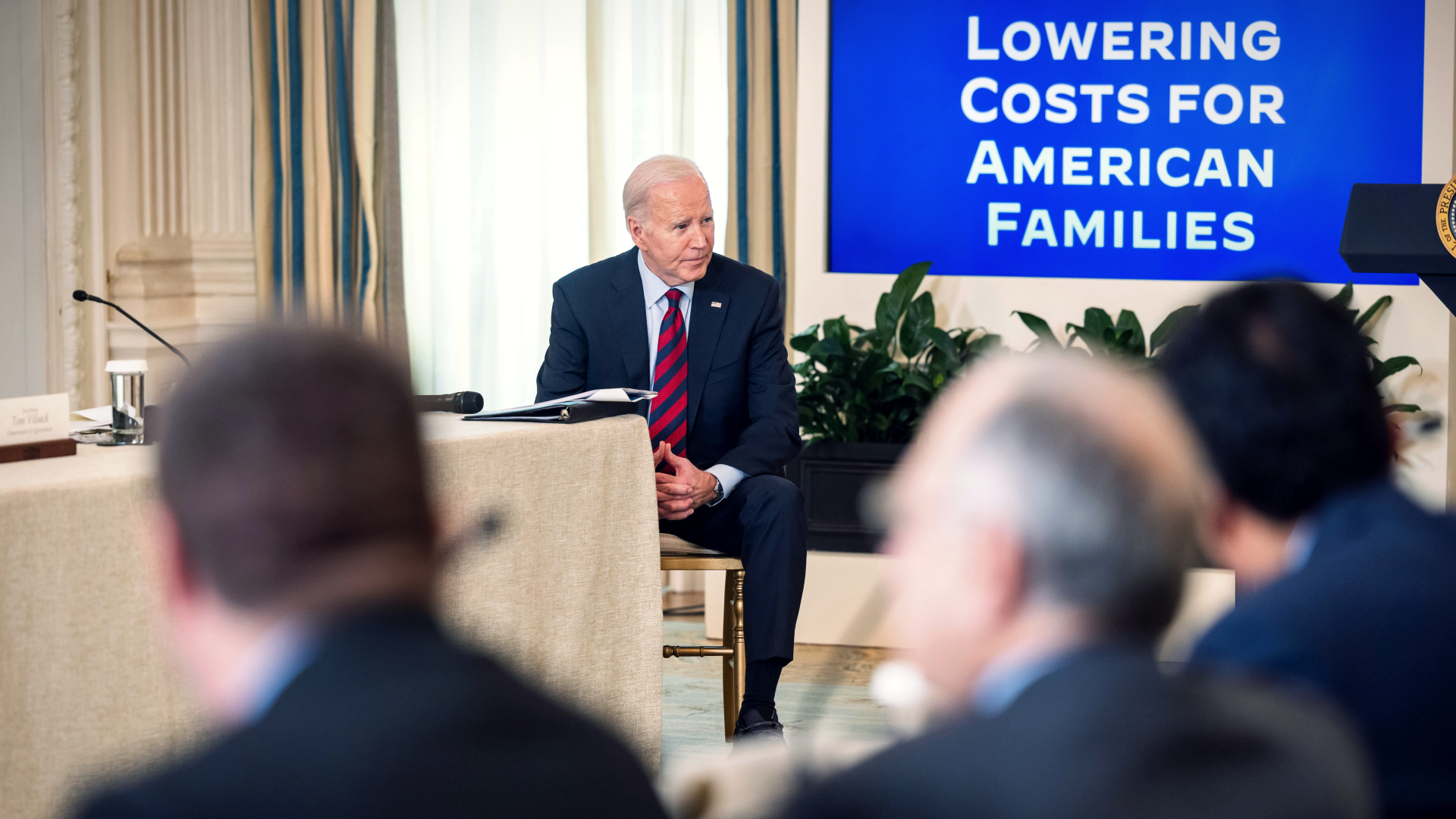Feds cap credit card late fees at $8
The Consumer Financial Protection Bureau finalized a rule to save households an estimated $10 billion a year


A free daily email with the biggest news stories of the day – and the best features from TheWeek.com
You are now subscribed
Your newsletter sign-up was successful
What happened?
The Consumer Financial Protection Bureau (CFPB) finalized a rule Tuesday that will cap credit card late fees at $8 a month, from the current average of $32, saving households an estimated $10 billion a year.
Who said what?
"Big credit card companies" have been "hiding behind the excuse of inflation" to "harvest billions of dollars in junk fees" from consumers, said CFPB director Rohit Chopra. This rule will "stop some credit card companies from ripping you off," President Joe Biden said. Sen. Tim Scott (R-S.C.) said it will limit "credit card products for those who need it most."
The commentary
The Biden administration is "messaging this rule as a 'win' for consumers going into an election year," but "it's anything but," said Lindsey Johnson at the Consumer Bankers Association. "On the surface, this is undoubtedly a good thing for credit cardholders," Matt Schulz, chief credit analyst at LendingTree, said to NPR. But banks will likely "raise other types of fees to make up for the lost revenue."
The Week
Escape your echo chamber. Get the facts behind the news, plus analysis from multiple perspectives.

Sign up for The Week's Free Newsletters
From our morning news briefing to a weekly Good News Newsletter, get the best of The Week delivered directly to your inbox.
From our morning news briefing to a weekly Good News Newsletter, get the best of The Week delivered directly to your inbox.
What next?
The rule will go into effect in about 60 days. Banking groups said they will sue to block it.
A free daily email with the biggest news stories of the day – and the best features from TheWeek.com
Peter has worked as a news and culture writer and editor at The Week since the site's launch in 2008. He covers politics, world affairs, religion and cultural currents. His journalism career began as a copy editor at a financial newswire and has included editorial positions at The New York Times Magazine, Facts on File, and Oregon State University.
-
 Will Trump’s 10% credit card rate limit actually help consumers?
Will Trump’s 10% credit card rate limit actually help consumers?Today's Big Question Banks say they would pull back on credit
-
 What will the US economy look like in 2026?
What will the US economy look like in 2026?Today’s Big Question Wall Street is bullish, but uncertain
-
 TikTok secures deal to remain in US
TikTok secures deal to remain in USSpeed Read ByteDance will form a US version of the popular video-sharing platform
-
 Unemployment rate ticks up amid fall job losses
Unemployment rate ticks up amid fall job lossesSpeed Read Data released by the Commerce Department indicates ‘one of the weakest American labor markets in years’
-
 Is $140,000 the real poverty line?
Is $140,000 the real poverty line?Feature Financial hardship is wearing Americans down, and the break-even point for many families keeps rising
-
 Fast food is no longer affordable for low-income Americans
Fast food is no longer affordable for low-income AmericansThe explainer Cheap meals are getting farther out of reach
-
 US mints final penny after 232-year run
US mints final penny after 232-year runSpeed Read Production of the one-cent coin has ended
-
 Why has America’s economy gone K-shaped?
Why has America’s economy gone K-shaped?Today's Big Question The rich are doing well. Everybody else is scrimping.



